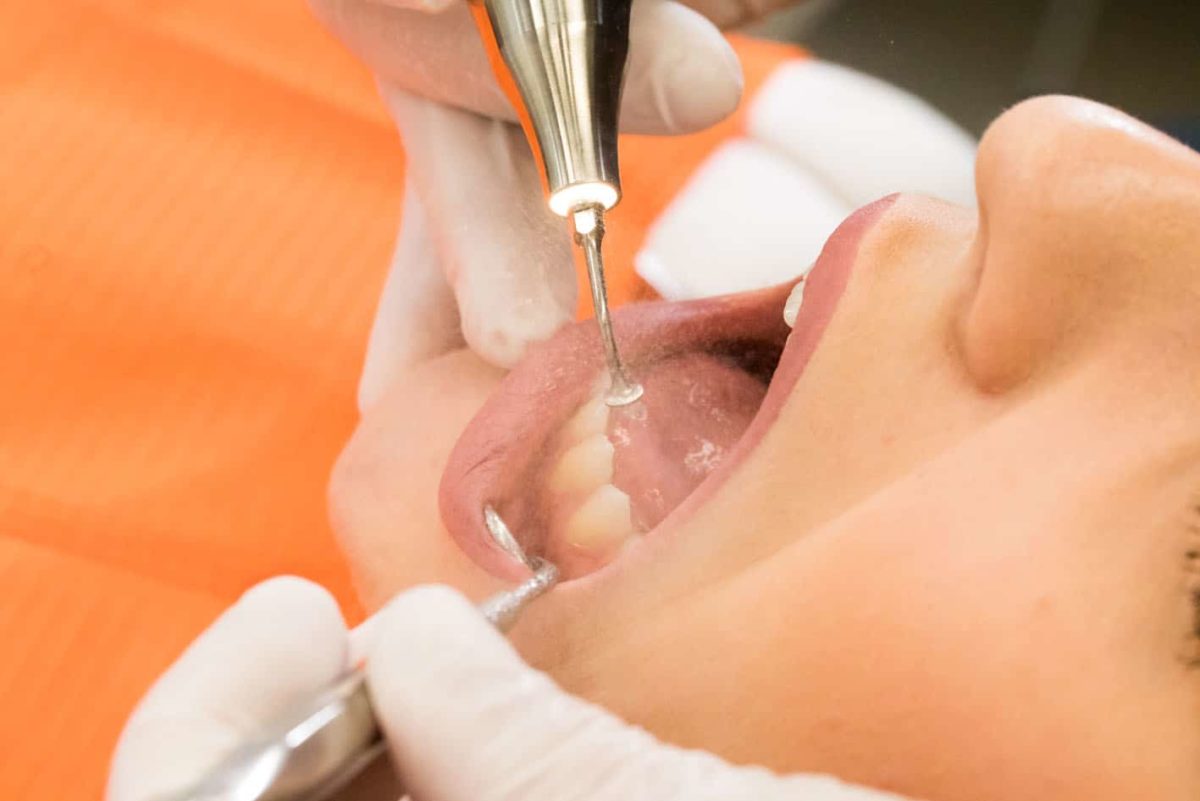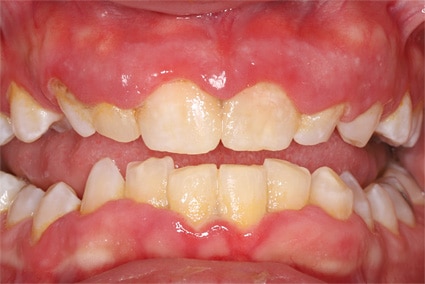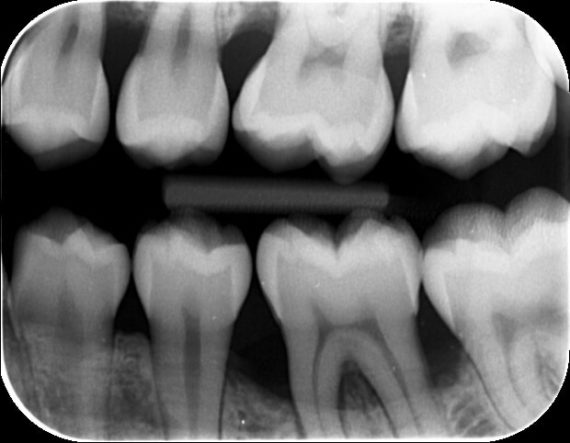Gum treatment
The periodontium corresponds to the supporting tissues of the tooth and includes gingiva, desmodontal ligament and alveolar bone. Periodontics is the part of dentistry that specializes in treating the periodontium. It aims to maintain or restore its health, which is essential for good oral health.

What is periodontal disease?
Periodontal diseases are caused by infections induced by bacteria proliferating in dental plaque, and manifest themselves as gingivitis (inflammation of the gums) or periodontitis (inflammation of the tissues supporting the teeth).

Gingivitis
It is characterized by bleeding gums, especially when brushing, edema (swelling) and redness. Pain is not always present. If left untreated, gingivitis can develop into periodontitis.

Periodontitis
First, the gum loses its attachment to the tooth neck, then the supporting tissues (periodontium) are affected, gradually leading to loosening and even tooth loss. The rate of progression of periodontitis varies according to the type of bacteria, the individual and the age of onset. The stage of the disease is assessed using a round-tipped probe placed between the tooth and the gum. Normally, the depth of this space varies between 0 and 3mm. From 4mm upwards, it’s called a periodontal pocket, and is the main indicator of disease. Periodontal disease is the leading cause of tooth loss in adults.
How is periodontal disease managed?
The management of periodontal disease involves collaboration between the specialist dentist, known as the periodontologist, and the patient. On the one hand, the practitioner must provide rigorous hygiene care, combined with scaling and root planing (removal of subgingival deposits). On the other hand, the patient must ensure impeccable daily dental hygiene. This collaboration ensures the best possible conditions for healing.
However, in cases of advanced periodontitis, conventional treatment is insufficient: surgical treatment must be considered. In this particular case, your periodontologist will provide you with all the information you need in good time.
Periodontitis is a chronic disease whose long-term stability is entirely dependent on 2 factors: the patient’s maintenance of perfect hygiene and regular check-ups with the periodontologist (approximately every 3-4 months).
An increasing number of studies show that there is a link between periodontal disease and general health: periodontitis increases the risk of arteriosclerosis, miscarriage, premature birth… So good periodontal health is not just useful for maintaining good teeth!

